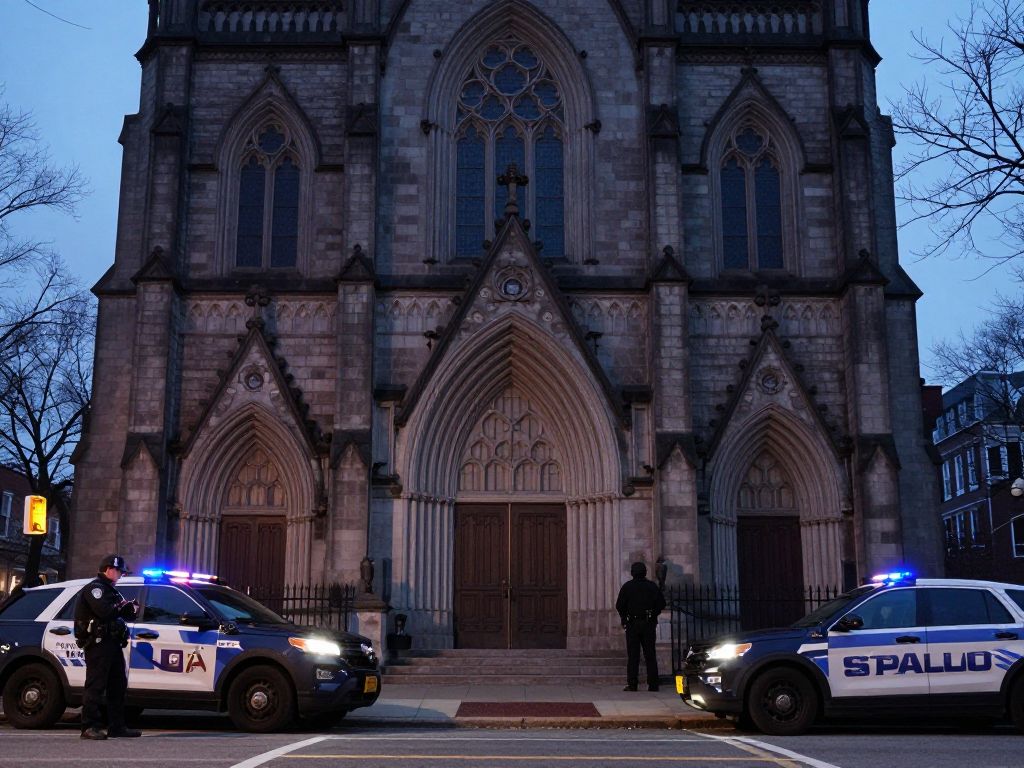News Summary
The Philadelphia Tax Reform Commission has presented an interim report advocating for the abolition of the Business Income and Receipts Tax (BIRT) over 8 to 12 years. The proposal aims to alleviate financial burdens on businesses to stimulate job growth in the city. Many companies cite high taxes as a reason for relocating, posing challenges for Philadelphia’s economy. Mayor Parker’s budget includes modest tax reductions, but concerns linger about the balance between tax relief and funding for public services.
Philadelphia – The Philadelphia Tax Reform Commission has revealed an interim report advocating for the abolition of the city’s Business Income and Receipts Tax (BIRT) over a span of 8 to 12 years. This proposal aims to ease the financial pressures on businesses and stimulate job growth in the city. The commission, appointed by Mayor Cherelle Parker, City Council, and local chambers of commerce, believes that a reduction in BIRT may enhance Philadelphia’s economic landscape.
BIRT is currently made up of two main components: a gross receipts tax of nearly 0.14% and a net income tax of roughly 5.81%. Many businesses in Philadelphia are subject to both of these taxes, resulting in a tax framework that has been labeled as “highly unusual” and considered a “double tax.” Approximately 35,500 companies contribute to BIRT annually, with the median annual tax payment being around $1,315.
The BIRT revenue contributes approximately $617 million towards Philadelphia’s annual budget of $6.7 billion, making it the second-largest source of revenue after the wage tax. The Tax Reform Commission posits that eliminating BIRT could potentially create tens of thousands of new jobs within the city, reflecting its concerns regarding Philadelphia’s business tax rates as being higher than those in competitive cities, such as New York and Washington D.C. This disparity has reportedly prompted some businesses to relocate or refrain from establishing operations in Philadelphia.
Current examples highlight this issue, as Jefferson Health is weighing the option of moving its headquarters out of the city due to the prevailing high wage taxes. The commission indicates that the high taxation is a factor in Philadelphia’s median income falling below the national average, urging city officials to expedite tax reduction proposals that promise substantial long-term economic benefits.
In response to these findings, Mayor Parker has introduced modest tax reduction measures in her most recent budget proposal. The plan entails ongoing annual reductions over the next thirteen years, ultimately aiming to phase out the gross sales element of BIRT by 2038. However, concerns persist regarding the potential ramifications of these tax cuts, particularly concerning public services and community needs.
The proposed budget also includes funding increases for various initiatives, but the plan also proposes a rise in the Real Estate Transfer Tax, which is intended to finance the HOME initiative aimed at housing renovation. Critics of the BIRT elimination strategy worry that the proposed tax cuts may inadvertently favor larger businesses at the expense of smaller enterprises, potentially placing additional financial burdens on property owners.
The commission’s findings emphasize the pivotal role of restructuring the city’s business tax framework to more effectively promote economic vitality and attract new enterprises. By addressing the existing tax burdens, Philadelphia officials aim to create an environment that fosters job creation and enhances the overall economic standing of the city.
As the commission continues to work on refining its recommendations, it is expected that the ongoing discussions surrounding tax reform in Philadelphia will shape the city’s economic future. The impact of these proposed changes will be closely monitored by businesses, local stakeholders, and residents alike as the city navigates this crucial period of economic policy-making.
Deeper Dive: News & Info About This Topic
HERE Resources
Philadelphia’s Small Businesses Affected by Tax Break Elimination
Philadelphia’s Budget Proposal Addresses Tax Reforms and Transit
Funding Dilemma in Pennsylvania’s Education System
Pennsylvania Legislation on Recreational Marijuana
Additional Resources
- Axios: Business Wage Tax Cuts
- Wikipedia: Business Tax
- Inquirer: Philadelphia City Business Tax
- Google Search: Philadelphia Business Tax Reform
- Philadelphia Council: Tax Reform Commission Report
- Google Scholar: Philadelphia Tax Reform
- Philly Mag: Business Tax Reform Philadelphia
- Encyclopedia Britannica: Tax Reform
- Billy Penn: Mayor Parker Budget Tax Cuts
- Google News: Philadelphia Tax Cuts

Author: STAFF HERE PHILADELPHIA WRITER
The PHILADELPHIA STAFF WRITER represents the experienced team at HEREPhiladelphia.com, your go-to source for actionable local news and information in Philadelphia, Philadelphia County, and beyond. Specializing in "news you can use," we cover essential topics like product reviews for personal and business needs, local business directories, politics, real estate trends, neighborhood insights, and state news affecting the area—with deep expertise drawn from years of dedicated reporting and strong community input, including local press releases and business updates. We deliver top reporting on high-value events such as Mummers Parade, Philadelphia Flower Show, and Thanksgiving Day Parade. Our coverage extends to key organizations like the Greater Philadelphia Chamber of Commerce and United Way of Greater Philadelphia, plus leading businesses in telecommunications, food services, and healthcare that power the local economy such as Comcast, Aramark, and Children's Hospital of Philadelphia. As part of the broader HERE network, we provide comprehensive, credible insights into Pennsylvania's dynamic landscape.





